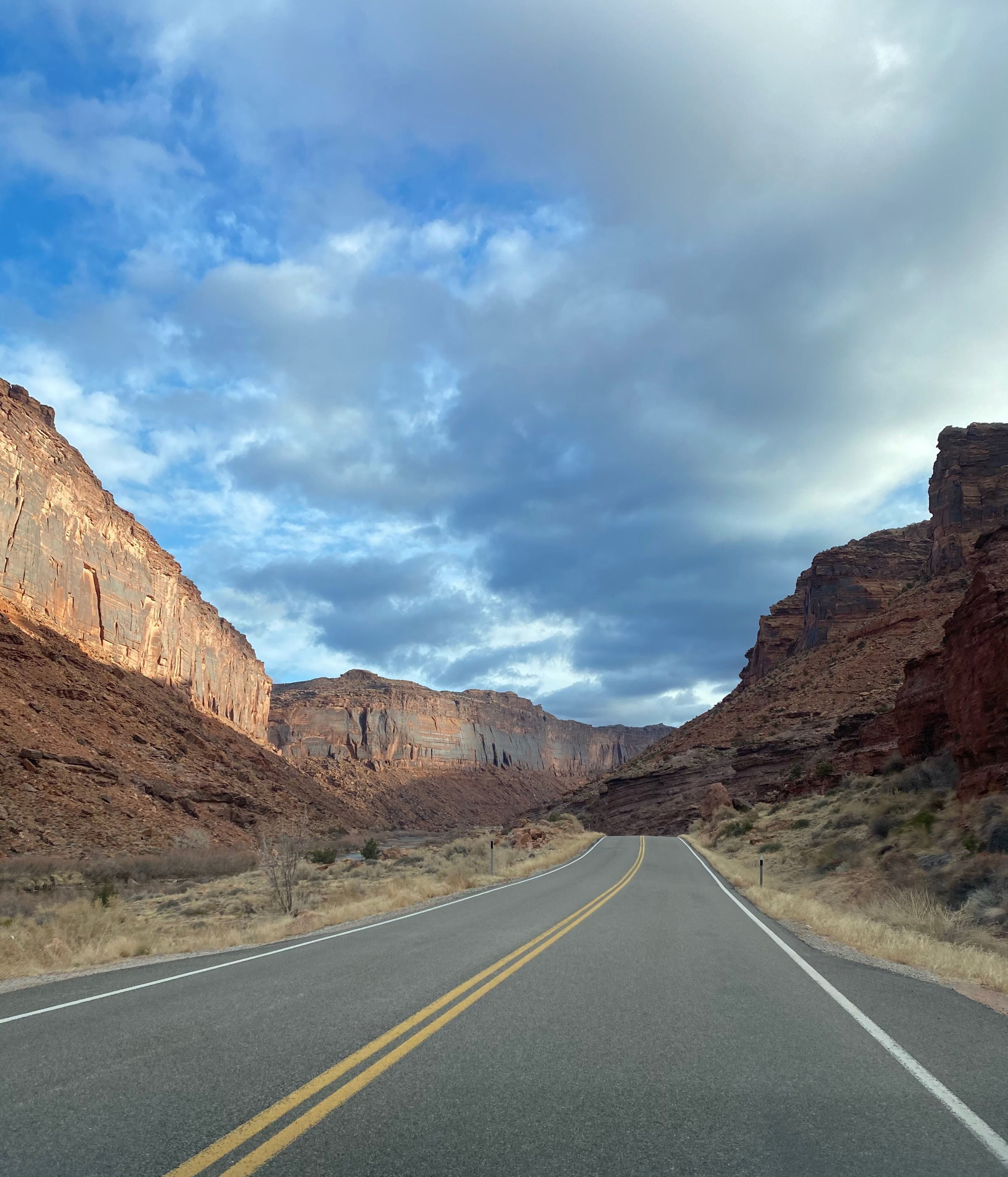
Well hello! A version of this article also appeared in the It’s Not Just You newsletter. Sign up here to receive a new edition every Sunday for free. And write to me at Susanna@Time.com
A Solitary Road Trip and Some Hope For Grace
Next week I’m going to pack up my little snoring dog and drive from Brooklyn to Los Angeles all by my vaccinated self. It’s somewhat insane, especially if you know how slowly I drive. But like lots of things we’ve been waiting months to do, the idea of seeing any vista beyond my neighborhood is ridiculously thrilling. I’m awash in pandemic-fueled gratitude.
There are a dozen routes that will bring me to national parks and into gorgeous parts of America that I don’t know well, or at all. But as the vigils and protests and grief-soaked press conferences cycle through the news day after day, I realize that it’s almost impossible to chart a cross-country trip without passing through states where there’s been a mass shooting incident or a traumatizing police-involved death just in the last few months. Indiana, Georgia, Minnesota, Colorado, Missouri, California, Texas, Illinois, and it goes on.
We can’t agree on much as a nation. But if you look at a map, you can see how this thread of violence connects us. We are bound by these tragedies. And there are just too many wounded cities, neighborhoods, workplaces, and families to drive around.
That painful geography leaves us with some choices: We can pretend that this violence is just unstoppable, or that it isn’t our problem at all.
Or, we can see all these communities as our communities, these wounds as our wounds, and these losses as our collective losses.
And if those grandparents and teenagers sorting packages at work, those parents buying groceries, and young men driving home to their moms are all part of our family, our human family, then changing what’s not working becomes a labor of love, not fury. Of hope, not blame. Of progress, not impotence.
If you’re new to It’s Not Just You, subscribe here to receive an essay every Sunday.
![I Am A Girl From Africa[2][3][2]](https://api.time.com/wp-content/uploads/2021/04/I-Am-A-Girl-From-Africa232.jpg?quality=75&w=2400)
I Am a Girl From Africa: At the age of 8, Elizabeth Nyamayaro almost starved after a drought devastated her small village in Zimbabwe. But as she lay on the hot unyielding earth between life and death, a young woman in a blue uniform showed up with a bowl of porridge. Nyamayaro later learned that the person who saved her worked for the United Nations, and she vowed to work for the U.N. herself. In this buoyant memoir, Nyamayaro traces her journey from that moment to a lifetime calling as a humanitarian in London, Geneva, and finally, as a United Nations Senior Advisor in New York. Nyamayaro still believes without a hint of cynicism that “what we share is more powerful than what divides us.” She can trace much of that faith in our collective humanity and in her own resilience to her Gogo (grandmother), whose lyrical voice we hear throughout the book:
“You are part of ubuntu, which means that your dream must be big enough for all of us, big enough for all Africans. Never forget that my dear child. Never forget.”
COPING KIT ⛱
If You’re Wiped Out and Muddle-Headed … it’s not just you. NPR spoke to psychiatrists who say their patients increasingly tell them that they’re exhausted and unable to concentrate. Mental health experts say it’s a normal reaction to abnormal times.
A Short Guided Meditation on Letting Go of Self-Doubt from British meditation teacher John Siddique.
EVIDENCE OF HUMAN KINDNESS❤️
Here’s your weekly reminder that creating a community of generosity elevates us all.
Charmaine is a young Houston woman who aged out of the foster care system and has been struggling to survive during the pandemic with limited resources and no family to speak of. After a historic winter storm hit Texas a few months ago, Charmaine’s home was rendered uninhabitable and she had to live in her car, an experience she described as “incredibly scary as a young woman and exhausting.”
With the waitlists for the nearby shelter and housing support backed up, the local Pandemic of Love chapter stepped in to rally the community and make sure Charmaine did not fall through the cracks any longer. “I was ready to give up on everything and saw no future for myself. I began to feel invisible to the world as if I did not matter,” confided Charmaine to a volunteer.
The group raised enough funds to ensure Charmaine could stay at a local hotel, and then one generous donor helped her pay for a first month’s rent and security deposit for a new apartment. Charmaine has since been able to find a job at a local Sam’s Club, and her spirits have been buoyed by the support:
“This community has saved my life. It has given me a home, an income, and, more importantly, it has restored my faith in humanity. I have a sense of worth now. I was seen. I matter, too.”
Story and images courtesy of Shelly Tygielski, founder of Pandemic of Love, a grassroots organization that matches volunteers, donors, and those in need.
Did someone forward you this newsletter? SUBSCRIBE to It’s Not Just You here.
More Must-Reads From TIME
- The 100 Most Influential People of 2024
- The Revolution of Yulia Navalnaya
- 6 Compliments That Land Every Time
- What's the Deal With the Bitcoin Halving?
- If You're Dating Right Now , You're Brave: Column
- The AI That Could Heal a Divided Internet
- Fallout Is a Brilliant Model for the Future of Video Game Adaptations
- Want Weekly Recs on What to Watch, Read, and More? Sign Up for Worth Your Time
Contact us at letters@time.com